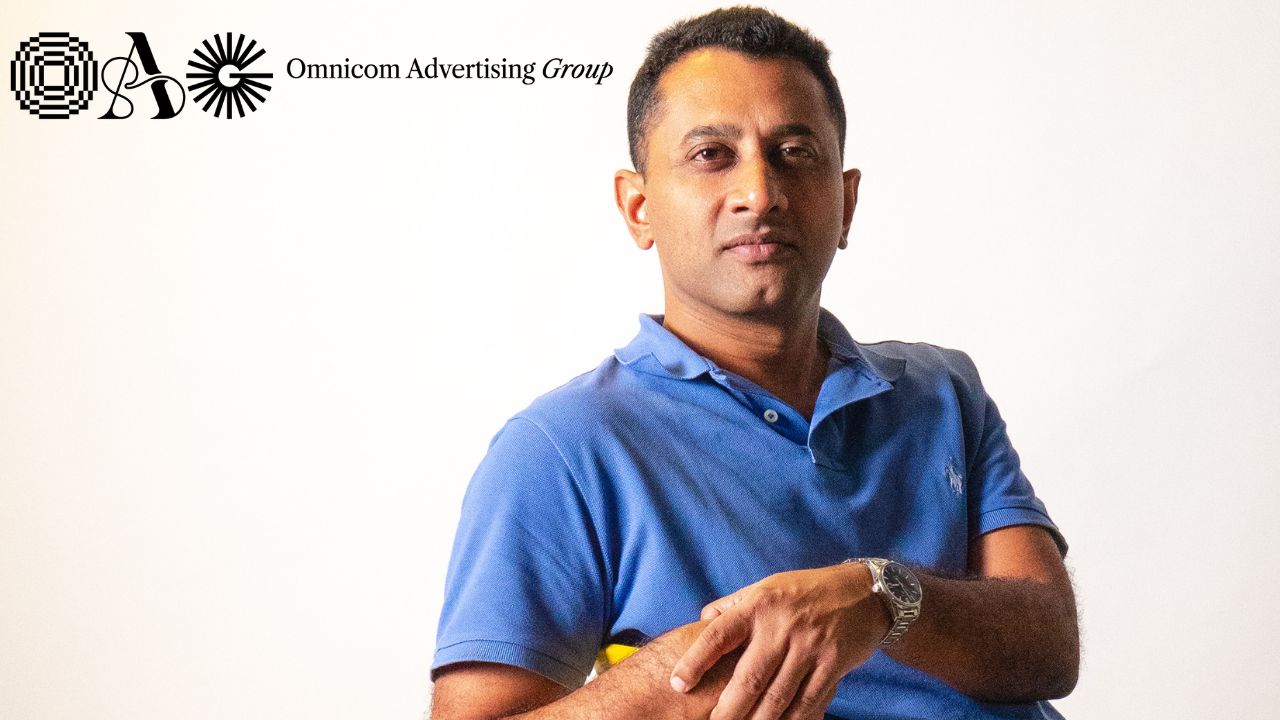2025 is going to be a defining year for the Omnicom Advertising Group on multiple levels.
While its parent-Omnicom stares at a possible acquisition of one of its rivals Interpublic Group (IPG) in an all-stock deal valued at $13 billion, Omnicom Advertising Group is looking at executing the expertise it gained from the recent global acquisitions with the likes of the digital commerce powerhouse Flywheel, and precision marketing experts LeapPoint.
In an interaction with Storyboard18, Aditya Kanthy, CEO, Omnicom Advertising Group, talks about the major milestones for the agency in 2024 and what it is looking forward to in the new year.
From an overall industry perspective, Kanthy also talks about how 2025 will be focused on the intersection of human creativity and technology and on better understanding the interaction between the artist and AI.
“The most impactful trends of 2025 are most likely to emerge from this interplay,” he adds.
Edited excerpts:
What were the key achievements for you and your team in 2024? What defining trends stood out for you in 2024?
It has been an interesting year in a sense that consumer demand hasn’t been as strong across categories as some of our clients had expected. We’ve done reasonably well to adapt to this condition. We have also made inroads into some exciting and emerging categories like EV, healthcare, Q-Commerce, Fintech and Gaming.
We have seen fresh, exciting work on some of our best long-standing campaigns, such as BBDO’s Share the Load for Ariel.
India became a pioneering market and the structure we have here is now a global reality. We have created the building blocks to deliver consistently across the customer journey by combining the strengths of BBDO, DDB, and TBWA. We will continue to see more of this collaboration in the coming year by also deepening our partnership with Omnicom Media Group, comprising of OMD and PHD.
In 2025, we expect to work more closely with our Global Capability Centers (GCC).
We will also concentrate on bringing the expertise gained from our global acquisitions such as the digital commerce powerhouse Flywheel, precision marketing experts LeapPoint and new practice areas such as Omnicom Production which houses Omnicom’s global production capabilities, to our clients.
Finally, one of the focus areas that I am particularly proud of is, our talent and DEI initiatives, like The Phyllis Project. Recognised as one of Omnicom’s top training programs globally, it has seen 52 women leaders grow with it, and in 2024 was extended to other markets in Asia.
How did the rise of AI and generative AI impact advertising industry this year?
We have seen AI and ML’s impact in segmenting audiences, targeting effectively and in optimising campaign performance. Additionally, we have also seen it in action in adapting, producing and delivering work more efficiently.
What we haven’t seen consistently is its application in creativity at a brand level.
This is where our focus lies – equipping our teams with the skills to use this technology in a way that understands the brand and shapes creative outcomes. For instance – we have developed AI tools like RAND to support the creative process – from research and ideation to production and analytics.
We’ve also built custom AI tools for some of our largest clients such as Royal Enfield, using them to streamline tasks for the brand’s global websites. We’ve developed custom GPTs to make our work easier and tools like LesGPT and The Brain help us access the body of knowledge and strategic expertise that exists within our network.
What disruptive trends will take the spotlight in 2025?
While AI has made it easier for us to do so many things, it is important to remember that technology is not a replacement for human insight. Our ability to think, to feel and rely on our instincts, bring depth and meaning to our creative ideas, remain essential.
The future will be focused on the intersection of human creativity and technology and on better understanding the interaction between the artist and AI. The most impactful trends of 2025 are most likely to emerge from this interplay.
I think we will also see a return to the fundamentals – on making sure that a deep understanding of the brand and the people it serves lies at the heart of everything that we do. This will require a shift in the application of AI and technology – moving beyond using it as a tool for efficiency to one that guides the creative process and shapes creative outcomes that are rooted in the brand’s point of view and the culture it shares with its audience. The focus will be on ensuring how we can do this consistently across brands.
What is your New Year’s resolution on a professional and personal front?
Be more deliberate about how I spend my time and energy.
